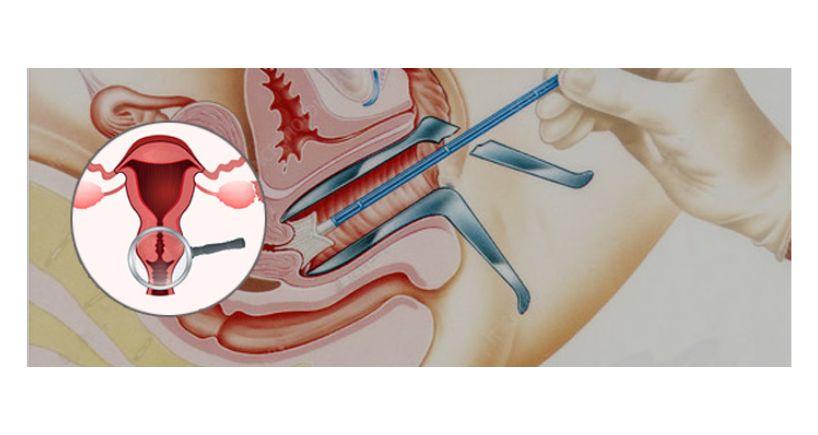
Pap Smear: What to Expect During the Test
Pap smear test, often called as Pap test or Papanicolaou test is one of the most significant screening tests in women’s health to detect cervical cancer. This test involves collecting cells from the cervix and its surrounding areas and microscopically evaluating them for signs of cancer. Additionally, this test can aid in the detection of precancerous cells, inflammation and infections. Regular Pap smears are generally advised for women 21 years of age and above, though recommendations may change according on risk factors, age, and medical history. Despite its significance, having a Pap smear can often make women anxious, particularly if they have never had one before. Understanding what to anticipate during the examination, how to prepare, and what the results signify can help women feel more confident in their reproductive health.
Who requires a Pap Smear test?
American College of Obstetricians and Gynaecologists recommends Pap smear test for women –
- Women aged 21 and older irrespective of their sexual activity.
- Repeat the test every 3 years even if results are normal.
- Women aged 30 and older to combine Pap smear test with Human Papilloma Virus (HPV) every 5 years.
- It may no longer be necessary for women over 65 to have Pap smears performed if they have had routine screenings with normal findings; nevertheless, this decision should be made in discussion with your healthcare professional.
How to prepare for Pap Smear test?
To ensure accuracy in test results, following guidelines must be followed –
- Refrain from sexual activity, douching or use of any vaginal medications 48 hours prior to test. These may wash away or may cause aberrant cells to disappear or obscured which could provide false positives.
- Schedule tests when you are not on period as menstrual blood can interfere with detection of abnormal cells and pathologists may find it difficult to analyse sample accurately. The best time to get a Pap smear is in the middle of your menstrual cycle, which is approximately 10 to 20 days following the first day of your period.
Procedure of Pap Smear Test:
Pap smear test is a simple and brief procedure taking less than 10 minutes. During the process, you will be positioned on an examination table on your back, your feet supported by stirrups and your legs spread wide.
Your healthcare professional will remove the little speculum that was inserted very carefully into your vagina. Through the maintenance of open vaginal walls, this device allows for cervix access. A tiny sample of cells will be scraped offed from the cervix. The scraped cells will be sent to laboratory for analysis to check for presence of abnormal cells.
What may one anticipate following the test?
Most women post test are asymptomatic, while few may experience mild spotting or light cramping. This may be often self-limiting or may resolve on its own within a day or two. If you experience significant pain or bleeding, it is important to seek medical attention.
Interpreting Test Results:
Normal Test Results:
A normal test result means presence of no abnormal or precancerous cells in your cervix.
Abnormal Results:
Abnormal results may not always signify positive cervical cancer. Most abnormal results are caused by infections, inflammation, or HPV. Further tests may be recommended to determine the root of abnormal cells.
Additional tests may include:
- HPV Test – to check for presence of virus that can be causative of cervical cancer.
- Colposcopy – A magnifying tool to have a closer look at the cervix.
- Biopsy – for detailed examination of cervix cells.
Abnormal results typically go away on their own. A follow-up Pap smear in six to twelve months may be recommended by the physician to check for any changes.
Common concerns and enquiries:
Most common concerns regarding Pap smear test include –
- Will it hurt?
The test is often painless however, one might experience mild discomfort especially when speculum is inserted.
- Should I do the test if I am pregnant?
They are safe during early stages of pregnancy. It is safe to do on doctor’s advice from 2nd trimester and onwards.
- What if I have attained menopause?
Unless directed otherwise by their physician, postmenopausal women should keep getting Pap smears.
Conclusion:
The Pap smear is an important element of women's health care since it detects abnormal changes in the cervix early, potentially preventing cervical cancer. Although it may appear unpleasant at first, knowing what to expect will help you feel more prepared and comfortable. Always visit your healthcare professional to determine how frequently you should have this test based on your age, health history, and risk factors. Regular Pap screenings are a modest step towards protecting your health, so don't let fear or anxiety prevent you from being tested. The procedure is short and simple, and it could eventually save your life.
Popular Searches :
Hospitals: Cancer Hospital in Delhi | Best Heart Hospital in Delhi | Hospital in Amritsar | Hospital in Ludhiana | Hospitals in Mohali | Hospital in Faridabad | Hospitals in Gurgaon | Best Hospital in Jaipur | Hospitals in Greater Noida | Hospitals in Noida | Best Kidney Hospital in Kolkata | Best Hospital in Kolkata | Hospitals in Rajajinagar Bangalore | Hospitals in Richmond Road Bangalore | Hospitals in Nagarbhavi Bangalore | Hospital in Kalyan West | Hospitals in Mulund | Best Hospital in India | | Cardiology Hospital in India | Best Cancer Hospital in India | Best Cardiology Hospital in India | Best Oncology Hospital In India | Best Cancer Hospital in Delhi | Best Liver Transplant Hospital in India
Doctors: Dr. Rana Patir | Dr. Rajesh Benny | Dr. Rahul Bhargava | Dr. Jayant Arora | Dr. Anoop Misra | Dr. Manu Tiwari | Dr. Praveer Agarwal | Dr. Arup Ratan Dutta | Dr. Meenakshi Ahuja | Dr. Anoop Jhurani | Dr. Shivaji Basu | Dr. Subhash Jangid | Dr. Atul Mathur | Dr. Gurinder Bedi | Dr. Monika Wadhawan | Dr. Debasis Datta | Dr. Shrinivas Narayan | Dr. Praveen Gupta | Dr. Nitin Jha | Dr. Raghu Nagaraj | Dr. Ashok Seth | Dr. Sandeep Vaishya | Dr. Atul Mishra | Dr. Z S Meharwal | Dr. Ajay Bhalla | Dr. Atul Kumar Mittal | Dr. Arvind Kumar Khurana | Dr. Narayan Hulse | Dr. Samir Parikh | Dr. Amit Javed | Dr. Narayan Banerjee | Dr. Bimlesh Dhar Pandey | Dr. Arghya Chattopadhyay | Dr. G.R. Vijay Kumar | Dr Ashok Gupta | Dr. Gourdas Choudhuri | Dr. Sushrut Singh | Dr. N.C. Krishnamani | Dr. Atampreet Singh | Dr. Vivek Jawali | Dr. Sanjeev Gulati | Dr. Amite Pankaj Aggarwal | Dr. Ajay Kaul | Dr. Sunita Varma | Dr. Manoj Kumar Goel | Dr. R Muralidharan | Dr. Sushmita Roychowdhury | Dr. T.S. MAHANT | Dr. UDIPTA RAY | Dr. Aparna Jaswal | Dr. Ravul Jindal | Dr. Savyasachi Saxena | Dr. Ajay Kumar Kriplani | Dr. Nitesh Rohatgi | Dr. Anupam Jindal |
Specialties: Heart Lung Transplant | Orthopedic | Cardiology Interventional | Obstetrics & Gynaecology | Onco Radiation | Neurosurgery | Interventional Cardiology | Gastroenterologist in Jaipur | Neuro Physician | Gynecologist in Kolkata | Best Neurologist in India | Liver Transfer



















